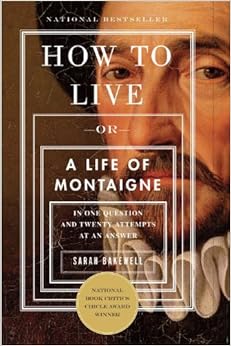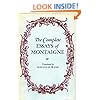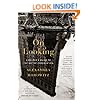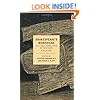
How to Live
and over one million other books are available for Amazon Kindle. Learn more


Flip to back
Flip to front

How to Live: Or A Life of Montaigne in One Question and Twenty Attempts at an Answer Paperback – September 20, 2011
See all 12 formats and editions
Hide other formats and editions
| Amazon Price | New from | Used from |
|
MP3 CD, Audiobook, MP3 Audio, Unabridged
"Please retry"
|
$11.58 | $15.92 |

$12.10
FREE Shipping on orders over $35.
In Stock.
Ships from and sold by Amazon.com.
Gift-wrap available.
NO_CONTENT_IN_FEATURE
Start reading How to Live on your Kindle in under a minute.
Don't have a Kindle? Get your Kindle here, or download a FREE Kindle Reading App.
Don't have a Kindle? Get your Kindle here, or download a FREE Kindle Reading App.
Browse in Books with Buzz and explore more details on selected titles, including the current pick, "Neil Patrick Harris: Choose Your Own Adventure," an engaging, interactive dive into the versatile actor's life (available in hardcover and Kindle book).
Product Details
Would you like to update product info or give feedback on images?.
|
Editorial Reviews
From Booklist
*Starred Review* In a wide-ranging intellectual career, Michel de Montaigne found no knowledge so hard to acquire as the knowledge of how to live this life well. By casting her biography of the writer as 20 chapters, each focused on a different answer to the question How to live? Bakewell limns Montaigne’s ceaseless pursuit of this most elusive knowledge. Embedded in the 20 life-knowledge responses, readers will find essential facts—when and where Montaigne was born, how and whom he married, how he became mayor of Bordeaux, how he managed a public life in a time of lethal religious and political passions. But Bakewell keeps the focus on the inner evolution of the acute mind informing Montaigne’s charmingly digressive and tolerantly skeptical essays. Flexible and curious, this was a mind at home contemplating the morality of cannibals, the meaning of his own near-death experience, and the puzzlingly human behavior of animals. And though Montaigne has identified his own personality as his overarching topic, Bakewell marvels at the way Montaigne’s prose has enchanted diverse readers—Hazlitt and Sterne, Woolf and Gide—with their own reflections. Because Montaigne’s capacious mirror still captivates many, this insightful life study will win high praise from both scholars and general readers. --Bryce Christensen
--This text refers to an out of print or unavailable edition of this title.
Review
“This charming biography shuffles incidents from Montaigne’s life and essays into twenty thematic chapters…Bakewell clearly relishes the anthropological anecdotes that enliven Montaigne’s work, but she handles equally well both his philosophical influences and the readers and interpreters who have guided the reception of the essays.” —The New Yorker
“Serious, engaging, and so infectiously in love with its subject that I found myself racing to finish so I could start rereading the Essays themselves…It is hard to imagine a better introduction—or reintroduction—to Montaigne than Bakewell’s book.” —Lorin Stein, Harper’s Magazine
“Ms. Bakewell’s new book, How to Live, is a biography, but in the form of a delightful conversation across the centuries.” —The New York Times
“So artful is Bakewell’s account of [Montaigne] that even skeptical readers may well come to share her admiration.” —The New York Times Book Review
“Extraordinary…a miracle of complex, revelatory organization, for as Bakewell moves along she provides a brilliant demonstration of the alchemy of historical viewpoint.” —Boston Globe
“Well, How to Live is a superb book, original, engaging, thorough, ambitious, and wise.” —Nick Hornby, in the November/December 2010 issue of The Believer
“In How to Live, an affectionate introduction to the author, Bakewell argues that, far from being a dusty old philosopher, Montaigne has never been more relevant—a 16th-century blogger, as she would have it—and so must be read, quite simply, ‘in order to live’…Bakewell is a wry and intelligent guide.” —The Daily Beast
“Witty, unorthodox…How to Live is a history of ideas told entirely on the ground, never divorced from the people thinking them. It hews close to Montaigne’s own preoccupations, especially his playful uncertainty – Bakewell is a stickler for what we can’t know. …How to Live is a delight…” —The Plain Dealer
“This book will have new readers excited to be acquainted to Montaigne’s life and ideas, and may even stir their curiosity to read more about the ancient Greek philosophers who influenced his writing. How to Live is a great companion to Montaigne’s essays, and even a great stand-alone.” —San Francisco Book Review
“A bright, genial, and generous introduction to the master’s methods.” —Kirkus Reviews
“[Bakewell reveals] one of literature's enduring figures as an idiosyncratic, humane, and surprisingly modern force.” —Publisher’s Weekly (starred)
“As described by Sarah Bakewell in her suavely enlightening How to Live, or A Life of Montaigne in One Question and Twenty Attempts at an Answer Montaigne is, with Walt Whitman, among the most congenial of literary giants, inclined to shrug over the inevitability of human failings and the last man to accuse anyone of self-absorption. His great subject, after all, was himself.” —Laura Miller, Salon.com
“Lively and fascinating . . . How To Live takes its place as the most enjoyable introduction to Montaigne in the English language.” —The Times Literary Supplement
“Splendidly conceived and exquisitely written . . . enormously absorbing.” —Sunday Times
“How to Live will delight and illuminate.” —The Independent
“It is ultimately [Montaigne’s] life-loving vivacity that Bakewell succeeds in communicating to her readers.” —The Observer
“This subtle and surprising book manages the trick of conversing in a frank and friendly manner with its centuries-old literary giant, as with a contemporary, while helpfully placing Montaigne in a historical context. The affection of the author for her subject is palpable and infectious.” —Phillip Lopate, author of The Art of the Personal Essay
“An intellectually lively treatment of a Renaissance giant and his world.” —Saturday Telegraph
“Like recent books on Proust, Joyce, and Austen, How to Live skillfully plucks a life-guide from the incessant flux of Montaigne’s prose . . . A superb, spirited introduction to the master.” —The Guardian
“[How to Live] is written in the form of a delightful conversation across the ages with one of the most appealing, likeable writers who ever lived.” —Independent Mail
"More than just a straightforward biography of Michel de Montaigne, Sarah Bakewell cleverly breaks away from chronology to explore the fundamental questions of living through the philosophy, beliefs, essays and experiences of the French master we often reference as the “father” of “essay.”—Cerise Press
"[A] must-read in its entirety." —Brainpickings
"Bakewell’s writing style is equal parts fluid and fascinating." —The Flâneur’s Turtle
“Serious, engaging, and so infectiously in love with its subject that I found myself racing to finish so I could start rereading the Essays themselves…It is hard to imagine a better introduction—or reintroduction—to Montaigne than Bakewell’s book.” —Lorin Stein, Harper’s Magazine
“Ms. Bakewell’s new book, How to Live, is a biography, but in the form of a delightful conversation across the centuries.” —The New York Times
“So artful is Bakewell’s account of [Montaigne] that even skeptical readers may well come to share her admiration.” —The New York Times Book Review
“Extraordinary…a miracle of complex, revelatory organization, for as Bakewell moves along she provides a brilliant demonstration of the alchemy of historical viewpoint.” —Boston Globe
“Well, How to Live is a superb book, original, engaging, thorough, ambitious, and wise.” —Nick Hornby, in the November/December 2010 issue of The Believer
“In How to Live, an affectionate introduction to the author, Bakewell argues that, far from being a dusty old philosopher, Montaigne has never been more relevant—a 16th-century blogger, as she would have it—and so must be read, quite simply, ‘in order to live’…Bakewell is a wry and intelligent guide.” —The Daily Beast
“Witty, unorthodox…How to Live is a history of ideas told entirely on the ground, never divorced from the people thinking them. It hews close to Montaigne’s own preoccupations, especially his playful uncertainty – Bakewell is a stickler for what we can’t know. …How to Live is a delight…” —The Plain Dealer
“This book will have new readers excited to be acquainted to Montaigne’s life and ideas, and may even stir their curiosity to read more about the ancient Greek philosophers who influenced his writing. How to Live is a great companion to Montaigne’s essays, and even a great stand-alone.” —San Francisco Book Review
“A bright, genial, and generous introduction to the master’s methods.” —Kirkus Reviews
“[Bakewell reveals] one of literature's enduring figures as an idiosyncratic, humane, and surprisingly modern force.” —Publisher’s Weekly (starred)
“As described by Sarah Bakewell in her suavely enlightening How to Live, or A Life of Montaigne in One Question and Twenty Attempts at an Answer Montaigne is, with Walt Whitman, among the most congenial of literary giants, inclined to shrug over the inevitability of human failings and the last man to accuse anyone of self-absorption. His great subject, after all, was himself.” —Laura Miller, Salon.com
“Lively and fascinating . . . How To Live takes its place as the most enjoyable introduction to Montaigne in the English language.” —The Times Literary Supplement
“Splendidly conceived and exquisitely written . . . enormously absorbing.” —Sunday Times
“How to Live will delight and illuminate.” —The Independent
“It is ultimately [Montaigne’s] life-loving vivacity that Bakewell succeeds in communicating to her readers.” —The Observer
“This subtle and surprising book manages the trick of conversing in a frank and friendly manner with its centuries-old literary giant, as with a contemporary, while helpfully placing Montaigne in a historical context. The affection of the author for her subject is palpable and infectious.” —Phillip Lopate, author of The Art of the Personal Essay
“An intellectually lively treatment of a Renaissance giant and his world.” —Saturday Telegraph
“Like recent books on Proust, Joyce, and Austen, How to Live skillfully plucks a life-guide from the incessant flux of Montaigne’s prose . . . A superb, spirited introduction to the master.” —The Guardian
“[How to Live] is written in the form of a delightful conversation across the ages with one of the most appealing, likeable writers who ever lived.” —Independent Mail
"More than just a straightforward biography of Michel de Montaigne, Sarah Bakewell cleverly breaks away from chronology to explore the fundamental questions of living through the philosophy, beliefs, essays and experiences of the French master we often reference as the “father” of “essay.”—Cerise Press
"[A] must-read in its entirety." —Brainpickings
"Bakewell’s writing style is equal parts fluid and fascinating." —The Flâneur’s Turtle
More About the Author
Sarah Bakewell was born in Bournemouth on the English south coast in 1963, but spent most of her childhood in Sydney, Australia, after several years travelling the hippy trail through Asia with her parents. Returning to Britain, she studied philosophy at the University of Essex and worked as a curator of early printed books at London's Wellcome Library for ten years before devoting herself to full-time writing in 2002. After a few years living in the Italian countryside, she has returned to urban life in London, where she teaches creative writing at City University, London, and for the Open University.
Her three books are all biographies, but the latest, 'How to Live: a life of Montaigne', is also an exploration of philosophical questions, not least the one posed by its title: How does one live well?
Her three books are all biographies, but the latest, 'How to Live: a life of Montaigne', is also an exploration of philosophical questions, not least the one posed by its title: How does one live well?
Customer Reviews
Most Helpful Customer Reviews
195 of 203 people found the following review helpful
By
J. W. Kennedy
VINE VOICE on September 15, 2010
Format: Hardcover
Vine Customer Review of Free Product
(
What's this?
)
4 Comments
Sending feedback...
This is not so much a biography of Michel de Montaigne as it is a biography of his book ... which is a legitimate approach since Montaigne himself described the Essays as a portrait of himself, a model of the author in text form. So, Ms. Bakewell has given us many facts about Montaigne's life as well as chronicling the fortunes of the Essays during his life as well as the endless revisions and re-interpretations that occurred after his death. The story is told in true Montaignian fashion, out of chronological order and with numerous digressions, with chapter headings that consist of twenty hypothetical answers to the book's central question: "How to live?" Unlike Montaigne, the content of each chapter stays (mostly) relevant to the subject in its heading. The back of the book contains a brief timeline, an index, and a list of notes. (Strangely these numbered notes are not indicated in the text, making them essentially useless; but that may just be an idiosyncrasy of the Uncorrected Proof copy which I read.)
I first discovered Montaigne when I happened upon the Essays in the History section of the bookstore. I knew nothing about him, but the dust-jacket blurb described him as the inventor of the essay, literature's first "modern" writer, an affable gentleman who good-naturedly natters on at length about any topic that catches his fancy (his favorite subject being himself). His mind wanders and his pen follows it wherever it happens to go. I bought the book, expecting nothing more than to be entertained, and was amazed to discover how emotionally uplifting it was. Montaigne apparently did not wish to consider himself a "philosopher" yet that's what he seemed to be. Here's an educated, well-read guy with an agreeable, easygoing manner ..Read more ›
I first discovered Montaigne when I happened upon the Essays in the History section of the bookstore. I knew nothing about him, but the dust-jacket blurb described him as the inventor of the essay, literature's first "modern" writer, an affable gentleman who good-naturedly natters on at length about any topic that catches his fancy (his favorite subject being himself). His mind wanders and his pen follows it wherever it happens to go. I bought the book, expecting nothing more than to be entertained, and was amazed to discover how emotionally uplifting it was. Montaigne apparently did not wish to consider himself a "philosopher" yet that's what he seemed to be. Here's an educated, well-read guy with an agreeable, easygoing manner ..Read more ›
Thank you for your feedback.
If this review is inappropriate, please let us know.
Sorry, we failed to record your vote. Please try again
96 of 100 people found the following review helpful
By
Ken C.
TOP 1000 REVIEWER on November 18, 2010
Format: Hardcover
Vine Customer Review of Free Product
(
What's this?
)
Comment
Sending feedback...
You've heard of hybrid cars? Get ready for the hybrid biography. Sarah Bakewell's luminous HOW TO LIVE is just that -- an inspired collision of biography, philosophy, history, rhetoric, and literary criticism, all sprinkled with a dollop of self-help. That's right, Bakewell shows how seamlessly Michel Eyquem de Montaigne can enter the 21st century and offer advice to the harried reader. Montaigne, after all, was anything BUT harried. Calm, cool, collected, stoic. That was our man in France.
Now most readers undertake a biography because they are interested in the subject. I was more intrigued by the critical buzz Bakewell's book garnered in the press. And so it was that I got to know Montaigne, famous author of the ESSAYS, through Bakewell's unique design of 20 chapters all based on the question "How to Live?" with a different answer. They are, in order, "Don't Worry About Death," "Pay Attention," "Be Born" (Editor's Note: Very funny), "Read A Lot, Forget Most of What You Read, and Be Slow-Witted," "Survive Love and Loss," "Use Little Tricks," "Question Everything," "Keep a Private Room Behind the Shop," "Be Convivial: Live With Others," "Wake From the Sleep of Habit," "Live Temperately," "Do Something No One Has Done Before," "Do a Good Job, But Not TOO Good a Job," "Philosophize Only by Accident," "Reflect on Everything; Regret Nothing," "Be Ordinary and Imperfect" (Editor's Note: Easy!), "Give Up Control," and "Let Life Be Its Own Answer." If those topics intrigue you in any way, so will this book.
What did I learn? Of course, as expected, a lot about Montaigne's life as that is the main thread.Read more ›
Now most readers undertake a biography because they are interested in the subject. I was more intrigued by the critical buzz Bakewell's book garnered in the press. And so it was that I got to know Montaigne, famous author of the ESSAYS, through Bakewell's unique design of 20 chapters all based on the question "How to Live?" with a different answer. They are, in order, "Don't Worry About Death," "Pay Attention," "Be Born" (Editor's Note: Very funny), "Read A Lot, Forget Most of What You Read, and Be Slow-Witted," "Survive Love and Loss," "Use Little Tricks," "Question Everything," "Keep a Private Room Behind the Shop," "Be Convivial: Live With Others," "Wake From the Sleep of Habit," "Live Temperately," "Do Something No One Has Done Before," "Do a Good Job, But Not TOO Good a Job," "Philosophize Only by Accident," "Reflect on Everything; Regret Nothing," "Be Ordinary and Imperfect" (Editor's Note: Easy!), "Give Up Control," and "Let Life Be Its Own Answer." If those topics intrigue you in any way, so will this book.
What did I learn? Of course, as expected, a lot about Montaigne's life as that is the main thread.Read more ›
Thank you for your feedback.
If this review is inappropriate, please let us know.
Sorry, we failed to record your vote. Please try again
48 of 51 people found the following review helpful
By
JMB1014
on November 11, 2010
Format: Hardcover
2 Comments
Sending feedback...
Sarah Bakewell's book on Michel Eyquem de Montaigne (1533-1592) is worthwhile in large part because Montaigne is not as widely read as he deserves to be; her work may help redress that situation. Wisely, she gives readers to understand that they may see themselves in Montaigne's Essays: She understands the narcissism that pervades our culture. It is fascinating - and rather suggestive - that so many people claim to see themselves in the writings of a thoroughgoing skeptic.
Her theme is "how to live" - a subject on which Montaigne is full of insights, though he never presumes to offer advice. In 20 chapters, Ms. Bakewell explores approaches to life derived from Montaigne, such as "Be ordinary and imperfect," "See the world," "Guard your humanity," "Wake from the sleep of habit," "Let life be its own answer," and perhaps most characteristically for Montaigne, "Question everything." If this smacks of the self-help book, don't be deceived. Montaigne is talking about his life, not yours. If you look in his Essays for tips on living, you will not be alone, though his purpose is to describe, not prescribe.
I will not attempt a discussion of Montaigne's Essays here. They have been well reviewed elsewhere. Suffice it to say that he was a learned and yet highly sympathetic member of the French nobility and man of affairs who gave up his public life and duties to think, read, and write. He is the author of insightful, often delightful, essays on all kinds of things - even cannibals.
Ms. Bakewell is more than a casual student of Montaigne and her lively study is more than just a history of his collection of essays. She offers a clear-eyed though necessarily incomplete view of Montaigne's personality, to the extent it can be made out from this remove.Read more ›
Her theme is "how to live" - a subject on which Montaigne is full of insights, though he never presumes to offer advice. In 20 chapters, Ms. Bakewell explores approaches to life derived from Montaigne, such as "Be ordinary and imperfect," "See the world," "Guard your humanity," "Wake from the sleep of habit," "Let life be its own answer," and perhaps most characteristically for Montaigne, "Question everything." If this smacks of the self-help book, don't be deceived. Montaigne is talking about his life, not yours. If you look in his Essays for tips on living, you will not be alone, though his purpose is to describe, not prescribe.
I will not attempt a discussion of Montaigne's Essays here. They have been well reviewed elsewhere. Suffice it to say that he was a learned and yet highly sympathetic member of the French nobility and man of affairs who gave up his public life and duties to think, read, and write. He is the author of insightful, often delightful, essays on all kinds of things - even cannibals.
Ms. Bakewell is more than a casual student of Montaigne and her lively study is more than just a history of his collection of essays. She offers a clear-eyed though necessarily incomplete view of Montaigne's personality, to the extent it can be made out from this remove.Read more ›
Thank you for your feedback.
If this review is inappropriate, please let us know.
Sorry, we failed to record your vote. Please try again











